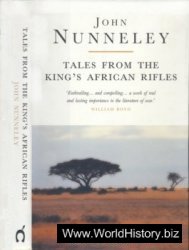The Walloons are a French-speaking people who primarily inhabit southern and eastern Belgium; the nation is divided along ethnolin-guistic lines. The Flemish (Dutch)-speaking Flemings live to their north and west in Belgium. The Walloons make up about one-third of Belgium’s population (see Belgians: nationality). The name Walloons is also applied to any of the modern inhabitants of the region of Wallonia—mostly the provinces of Hainaut, Liege, Luxembourg, Namur, and
Southern Brabant—despite ancestry; in this application the name Wallonian is more likely used. Walloon is probably derived from wealas, an Anglo-Saxon word for foreigner, the same derivation as the name Welsh.
ORIGINS
Present-day Belgium was originally inhabited by Gauls, among them the Belgae. The Walloons are primarily descended from Celtic peoples who stayed in the region despite occupation by the Romans in the first century b. c.e. to fifth century C. E., and then the arrival of Germanic peoples, primarily the Franks, in the third-fourth centuries C. E. The division line between Germanic descendants and Celtic (and some Gallo-Roman) descendants started out as a natural boundary of dense forests running generally roughly east-west across present-day north-central Belgium just south of Brussels, the nation’s capital. In the fifth century with the withdrawal of Roman garrison, Frankish peoples expanded farther southward into present-day France. But the ancestral Walloons maintained a relatively intact population in spite of the development of Germanic-controlled kingdoms around them.
LANGUAGE
Those peoples living in the south in Belgium spoke the language of the Romanized Gauls, which evolved into what is known as Walloon, considered a regional indigenous language related to French. Those peoples in the north in Belgium (the region of Flanders) and present-day Netherlands spoke Germanic dialects that evolved into Flemish and the closely related Netherlandic (Dutch). Some scholars classify Walloon as a dialect of French; others, as a separate Romance language close to French. In the 20th century a French close to that spoken in France largely replaced it, and now only about one-third of Walloons speak their ancestral language. Efforts are being made in schools to preserve Walloon dialects. Some of Belgium’s citizens can be considered trilingual, speaking Walloon, French, and Flemish.
HISTORY
In 1830 at the time of the successful Belgian revolt from the Netherlands (and after involvement in the region of France, the Holy Roman Empire, Burgundy, Spain, and Austria) the Walloons, despite being outnumbered by Flemings, were the dominant political force. They established French as the only official language and controlled most of the wealth. Much of subsequent Belgian history relates to the movement toward increased suffrage for the Flemings. By the end of the 19th century government and courts in Flemish areas utilized Flemish in official proceedings. In 1898 Flemish was made Belgium’s second official language, and in the 20th century it was given primary status in Flanders.
In 1993 in a constitutional revision Belgium was made a federalist state with three separate and autonomous regions: Flanders, Wallonia, and Brussels. The current linguistic boundary between Wallonia and Flanders, demarcated by law, generally follows the ancient line that once separated Germanic peoples from Gallo-Roman peoples. The elected assemblies of both Wallonia and Flanders form regional governments that have broad authority over social and economic policy and administration. Brussels, the nation’s capital, is officially bilingual. Although sharing ancestry with Wallonians, the French-speaking inhabitants of Brussels do not generally see themselves as Walloons.
CULTURE
Economy
Much of Belgium’s heavy mining and industry occurred first in Wallonia. The traditional activities of agriculture, shipping, and textile manufacturing have persisted in Flanders.
Literature
From the ninth to the 11th century Latin was the primary literary language of the region, as recorded by monks in abbeys. Belgian literature had three distinct traditions—Flemish, French, and Walloon. In the mid-12th century some local chronicles and religious dramas were written in Walloon, and in the 17 th century poems known as pasqueyes on local themes used the
Walloons time line
WALLOONS
Location:
Southern and eastern Belgium; northern France
Time period:
First century b. c.e. to present
Ancestry:
Mostly Celtic (or Gallo-Roman)
Language:
Walloon; French
B. C. E.
First century Romans occupy Gaul.
C. E.
Third-fourth century Franks arrive in Belgium.
1830 Belgium claims independence.
1856 Societe Liegeoise de Litterature Wallonne founded at Liege to promote Walloon literature.
1898 Flemish becomes second official language of Belgium.
1993 Constitutional revision makes Belgium federalist state with separate autonomous regions of Flanders, Wallonia, and Brussels.
WELSH
Location:
Western Britain
Time period:
7000 B. C.E. to present
Ancestry:
Primarily Celtic
Language:
Welsh (from the Brythonic branch of Insular Celtic) and English
Native tongue. In the 18th and 19th centuries in addition to poetry Walloon was utilized in librettos, songs, and plays. In 1856 the Societe Liegeoise de Litterature Wallonne was founded at Liege. Works written in other languages were increasingly translated into Walloon. In the 20th century scholars studied the various Walloon dialects and standardized spelling and grammar for literary purposes, although many modern Belgian authors have chosen to write in French.
The majority of Walloons are Roman Catholic.
The evolving Walloon identity demonstrates varying concepts of a people. In ancient times the Walloons shared ancestry to a greater extent. Over the centuries as other peoples intermingled with them language and culture became the greatest unifying factors. With the use of the Walloon language now waning and culture more uniform throughout Europe the ties among those who consider themselves Walloon are based increasingly on geography.
Further Reading
Marina Boudart et al., eds. Modern Belgium (Brussels: Sposs, 1990).
Bernard A. Cook. Belgium: A History (Oxford: Peter Lang, 2002).
Ronald Eckford Mill Irving. The Flemings and Walloons of Belgium (London: Minority Rights Group International, 1980).
Charles Josserand. Walloon, the Language of Wallonia (Liege, Belgium: Union Culturelle Wallonne, 1992).
Grace LeGrave LeMense. The Walloon Belgians (Casco, Wisc.: LeMense, 1977).
Stephan B. Wickman, ed. Belgium: A Country Study (Washington, D. C.: U. S. Government Printing Office, 1985).




 World History
World History









